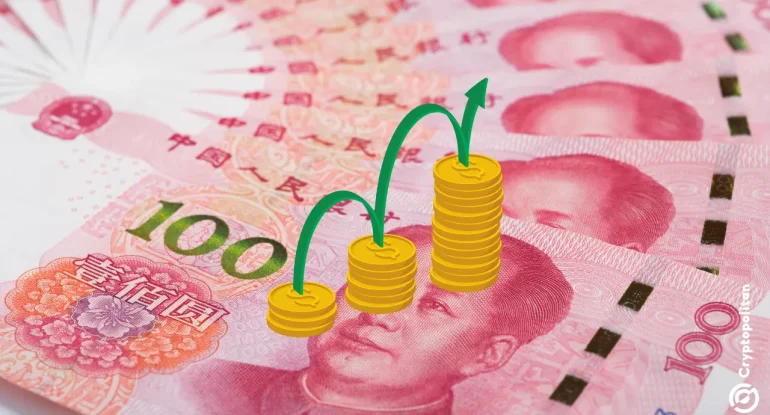High-Yield Chinese Bank Debt Attracts Foreign Investors

Here’s the rewritten content, aiming for a more natural and engaging tone while strictly adhering to your instructions:
In today’s uncertain economic landscape, investors are seeking stability, and they’ve found an intriguing option: Chinese interbank debt. Attracted by favorable currency exchange rates and a market that dances to a different tune than the rest of the world, foreign investors are increasingly turning to China.
Leading the charge are investors holding US dollars, who are actively purchasing negotiable certificates of deposit (NCDs). Think of NCDs as short-term loans between banks, designed to help them manage their day-to-day funding. The appeal? These instruments offer guaranteed returns that are proving more attractive than what you’d get from US Treasury bonds.
Cary Yeung, a debt expert focusing on greater China at Pictet Asset Management, puts it this way: “Global investors are on the hunt for investments that aren’t tied to the same patterns as everything else… China’s market moves in its own way, completely unlike what we’re seeing globally. That unique behavior is drawing capital back into China.”
This trend might be raising eyebrows in the US, especially as China’s economy demonstrates increasing resilience. Meanwhile, the US economy has faced more turbulence, particularly under the policies implemented during the Trump administration. Ironically, a key advantage for China has emerged from an unexpected source: its relatively weaker currency.
China has cleverly leveraged its currency to make its products more affordable and desirable on the global market compared to goods from other nations. Countering this, the US has been attempting to lessen its reliance on Chinese trade through tariffs.
However, these tariffs haven’t yet yielded the desired results. Still, the Trump administration maintains that these measures are a long-term strategy that will pay off soon.
Why the US-China Trade Spat Might Actually Be Helping China
Throughout much of last year, foreign investors were keen buyers of Chinese government bonds. However, that enthusiasm waned after September 2024. The reason? The yuan’s value had slipped, making those investments less appealing for traders looking to profit from currency fluctuations.
But a shift occurred in December. Foreign investors started snapping up NCDs instead. This subtle change signals a continued flow of money into China and provides a buffer for the yuan as trade tensions between China and the US escalate.
By the end of February, foreign holdings of NCDs reached a record 1.14 trillion yuan (or $157.51 billion). This marked the highest level ever recorded and the third consecutive month of increased investment.
Consider the numbers: one-year NCD yields have climbed roughly 40 basis points this year, reaching about 2%. Meanwhile, ten-year government bond yields have risen by 20 basis points to 1.89%. For dollar-based investors, exchanging dollars for yuan adds an extra 2.8% gain. Putting it all together, NCD investments are yielding around 4.8%, noticeably better than the approximately 4% return on one-year US Treasuries.
Chinese Stocks Holding Their Ground
An index tracking Chinese stocks listed in Hong Kong showed resilience, ending the trading day up 0.6%. The mainland’s CSI 300 Index of top companies saw a slight dip of 0.2% by day’s end.
Interestingly, both indices had jumped over 2% on the preceding Friday, fueled by investor anticipation of further government support measures.
During a recent meeting, a Chinese official hinted at the central bank’s consideration of new, targeted monetary policy tools. These tools would aim to channel low-cost funding into key areas of consumer spending. However, Li Chunlin, a deputy chief at the National Development and Reform Commission, pointed out that consumer appetite and confidence remain sluggish.
Shen Meng, a director at Beijing-based investment bank Chanson & Co., observes that while officials are discussing increased spending, they are less focused on strategies to boost incomes. This imbalance, he suggests, could undermine the effectiveness of measures designed to stimulate consumption.
A recent batch of economic data, while revealing some positive signs like stronger-than-expected retail sales and manufacturing output, didn’t grab much investor attention.
Looking at the bigger picture, Chinese stocks have outperformed many global markets this year. In fact, the MSCI China Index has surged around 20% in 2025, contrasting sharply with approximately a 4% decline in the S&P 500 Index. One contributing factor is the rally in technology stocks, partly triggered by advancements in AI models like DeepSeek AI.
Cryptopolitan Academy: Coming Soon – A New Way to Earn Passive Income with DeFi in 2025. Learn More











